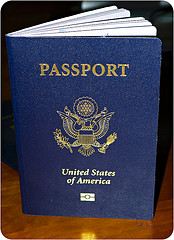 A recent study presented by the U.S. Travel Insurance Association (UStiA)Â found that Americans spent almost $1.8 billion on all types of travel insurance and travel assistance services in 2010, a number that is up from $1.6 billion in 2008 and $1.3 billion in 2006.The survey also reported that almost 27 million people were traveling with single trip or annual coverage from UStiA member companies, and that a vast majority of those plans are package plans that include trip cancellation and trip interruption coverage.
A recent study presented by the U.S. Travel Insurance Association (UStiA)Â found that Americans spent almost $1.8 billion on all types of travel insurance and travel assistance services in 2010, a number that is up from $1.6 billion in 2008 and $1.3 billion in 2006.The survey also reported that almost 27 million people were traveling with single trip or annual coverage from UStiA member companies, and that a vast majority of those plans are package plans that include trip cancellation and trip interruption coverage.
While sales of travel medical and medevac plans are also growing, policies that incorporate trip cancellation and trip interruption benefits continue to be the most popular plans and account for over 90% of all total travel insurance plans sold in the U.S.  – and for good reason.
The covered reasons for trip cancellation have expanded to include coverage for revoked leave, having to work, and job loss – all of which are likely events in the tough economy Americans have experienced for the last decade.  Knowing that they can cancel their trip for a covered reason and be refunded their pre-paid trip costs has given travelers a great deal of security.
Trip interruption benefits typically include the covered reasons stated in trip cancellation benefits, so (depending on the plan) coverage for terrorism, financial default, and serious illnesses or injuries back home and for the traveler are all covered reasons for abandoning the trip and receiving reimbursement for their unused trip costs. Again, that’s simply comfort of mind.






